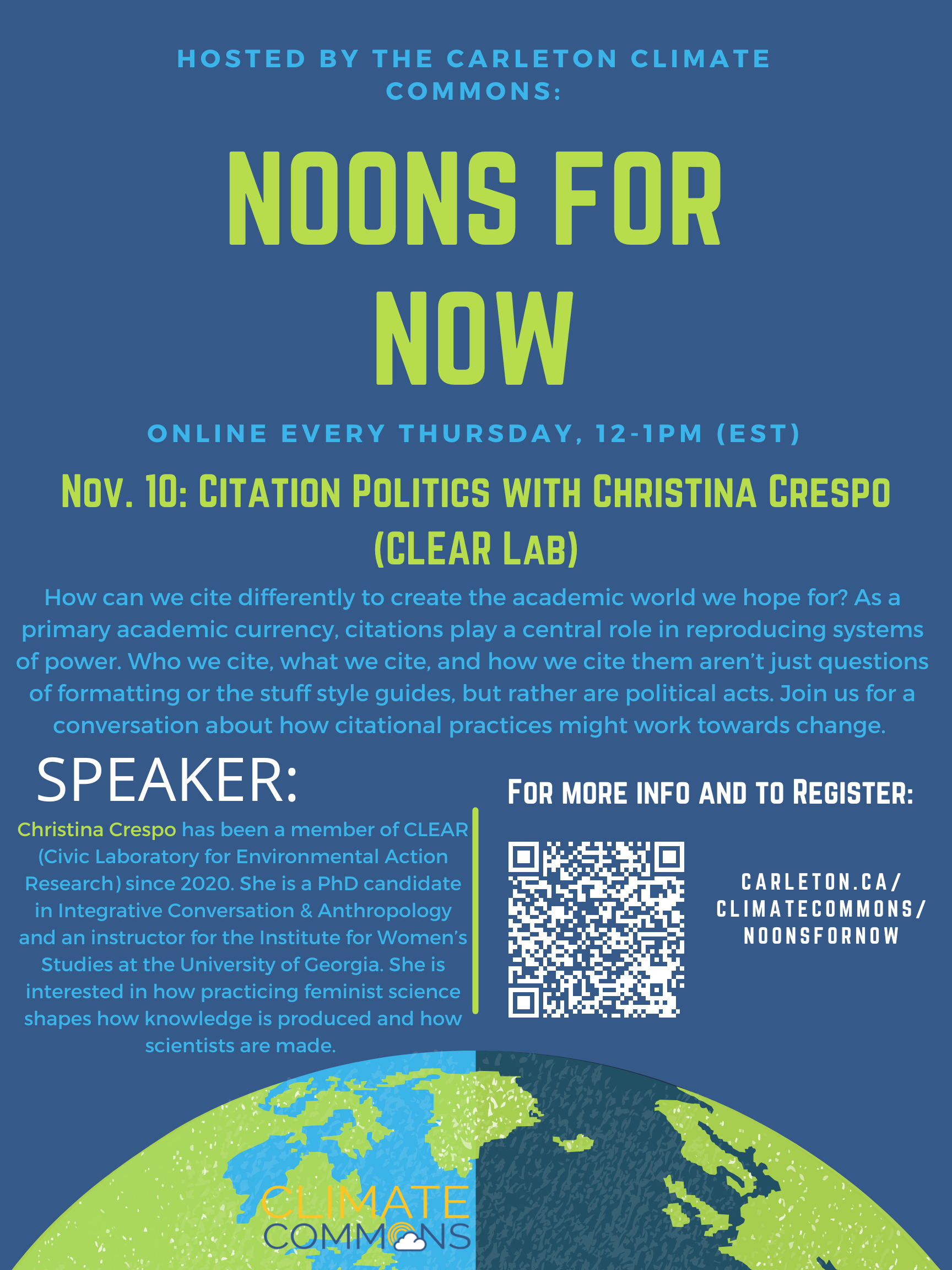
How can we cite differently to create the academic world we hope for? As a primary academic currency, citations play a central role in reproducing systems of power. Who we cite, what we cite, and how we cite them aren’t just questions of formatting or the stuff style guides, but rather are political acts. Join us for a conversation about how citational practices might work towards change.
Speaker:
Christina Crespo has been a member of CLEAR (Civic Laboratory for Environmental Action Research) since 2020. She is a PhD candidate in Integrative Conversation & Anthropology and an instructor for the Institute for Women’s Studies at the University of Georgia. Her research explores how scientists imagine and enact science otherwise, to foster more equitable practices and processes. In particular, she is interested in how practicing feminist science shapes how knowledge is produced and how scientists are made.
Resource List
Further Reading:
Ronjaunee Chatterjee, Alicia Mireles Christoff, and Amy R. Wong, “Undisciplining Victorian Studies,” Los Angeles Review of Books, 2020.
Katherine McKittrick, Dear Science and Other Stories, 2021.
Max Liboiron, Pollution is Colonialism, 2021.
Eve Tuck, K. Wayne Yang and Rubén Gaztambide-Fernández, Citation practices challenge. Critical Ethnic Studies, 2015.
Eve Tuck, “Suspending Damages: A Letter to Communities,” Harvard Educational Review, 2009.
Sara Ahmed, “Making Feminist Points,” 2013.
Citation Politics in Practice:
You can find out more about citation politics on the CLEAR Lab Website
The Pratt Institute Library also has a guide on citation politics.
Scientific Electronic Library Online
To-Dos:
- Consider how we can mindfully engage in citation politics in our research and writing as scholars.
- Integrate citation politics into the classroom
- If you are a student, ask your teachers about this practice
- If you are a teacher, consider how you can incorporate citation politics into your pedagogy